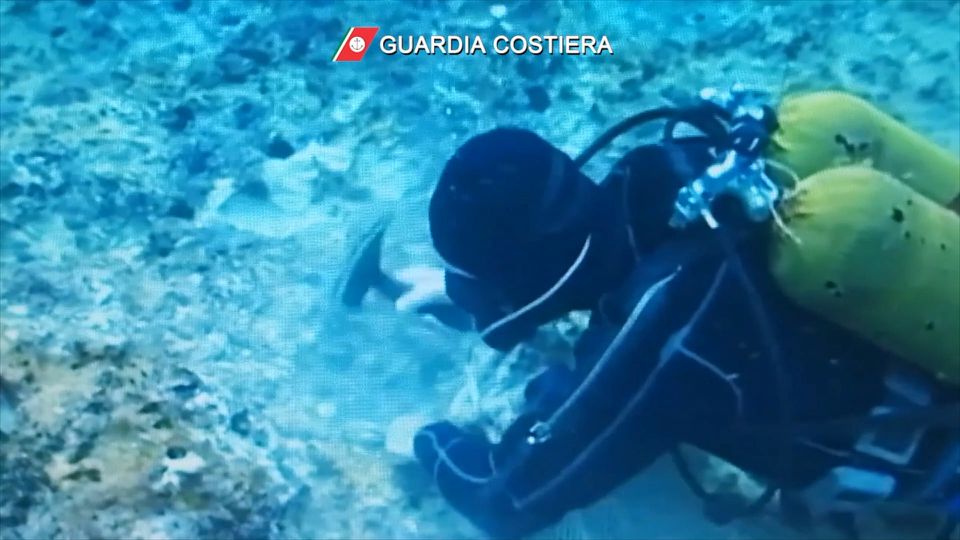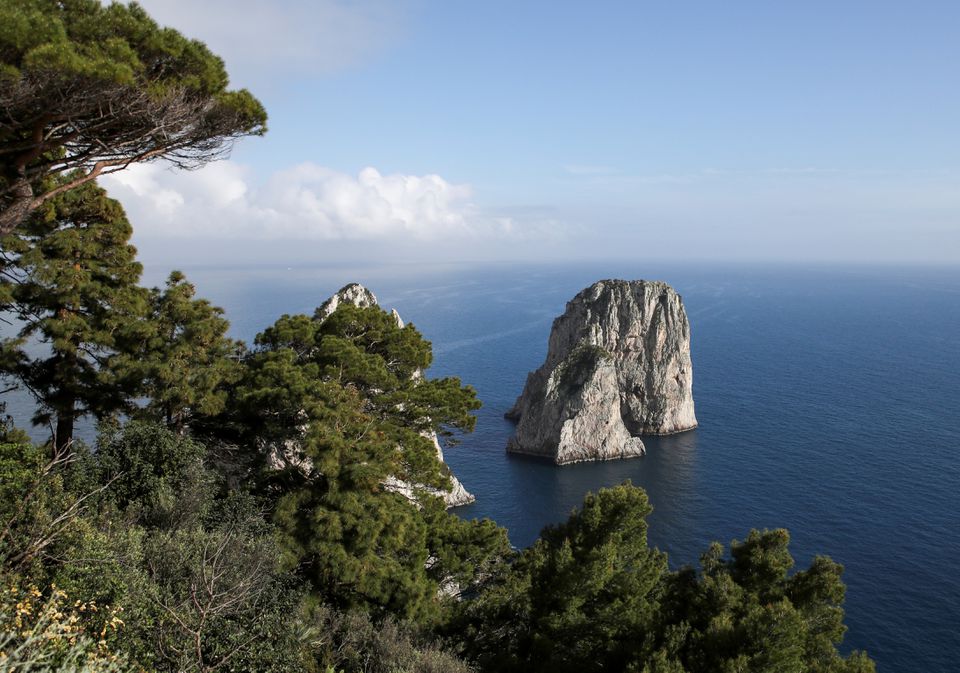The Italian coastguard arrested 18 people on Wednesday for illegal fishing of a rare mollusc, breaking up what police said was a criminal organisation that had been destroying a stretch of protected coastline south of Naples.
The arrests followed a three-year investigation into the group which had allegedly been harvesting date mussels, a protected species, using hammers to get them out of the rocks near the seaside beauty spot of Sorrento.
Fishing for date mussels has been illegal in Italy since 1998, because they are an endangered species and the invasive methods used to get them out of the rocks they bore into are destructive for the marine ecosystem.
The valuable shellfish, considered a delicacy, are longer than common mussels and have a browner shell. They sell at up to 200 euros ($235) per kilo on the black market.

